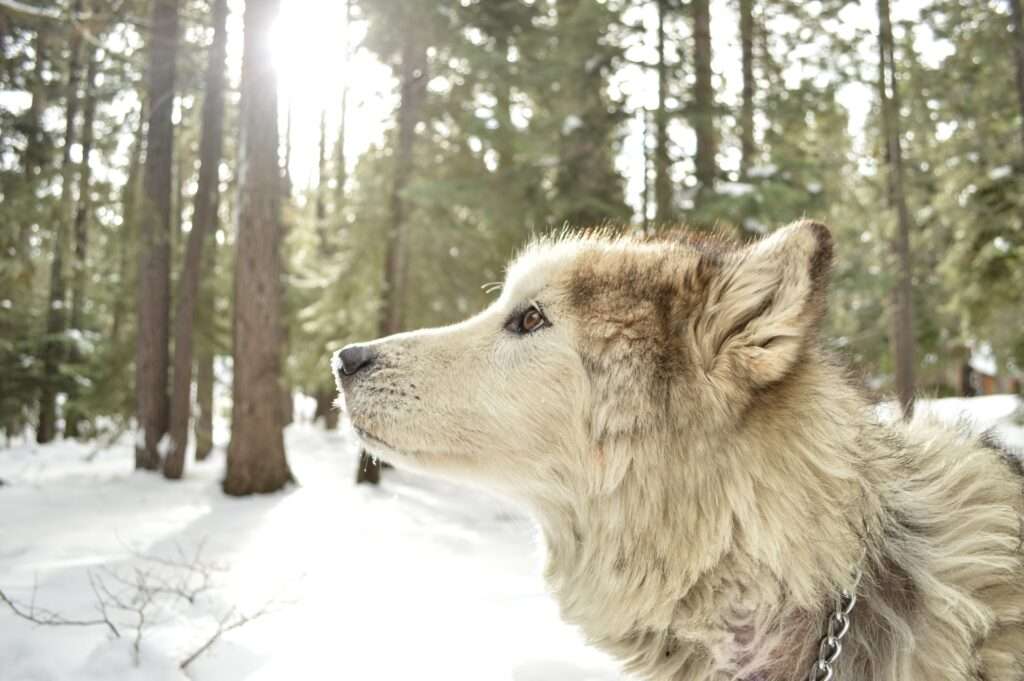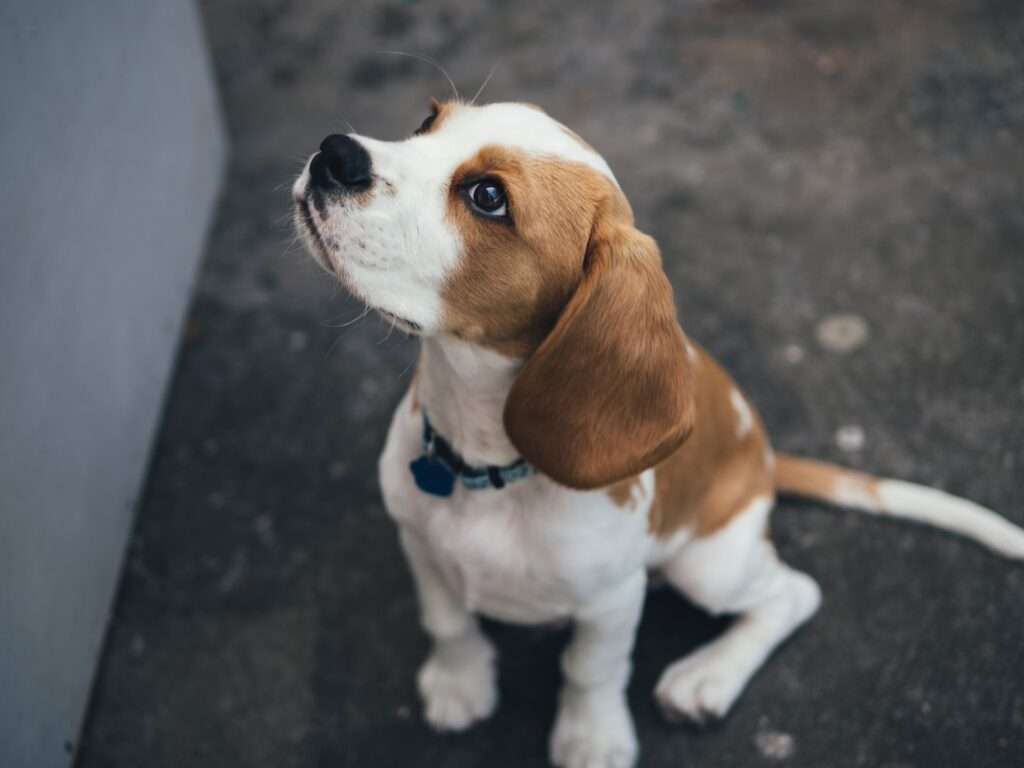Why Do Dogs Lick Their Privates? You Won’t Believe the Real Motive!
As dog owners, we’re often left bewildered by our furry companions’ eccentric behaviors. Among the many puzzling habits, one that frequently raises eyebrows is the act behind why do dogs lick their privates. This enigmatic behavior has intrigued pet owners for generations, prompting us to explore the underlying reasons behind it.
In this comprehensive article, we’ll delve deep into the world of canines and their grooming instincts, shedding light on the fascinating reasons why dogs engage in this particular behavior.
The Natural Instinct of Canines

Dogs, our lovable domesticated companions, have a fascinating ancestral lineage rooted in the wild. To understand their grooming behaviors, we must first examine their evolutionary journey. Dogs, descendants of wolves, have inherited certain instincts that aided their survival in the wild. Among these instincts lies the innate drive for cleanliness and self-care.
In the wild, where hygiene is crucial for survival, dogs and wolves engage in grooming rituals to maintain their well-being. This ancestral instinct still lingers within our furry friends, even in their domesticated lives. Understanding this evolutionary link helps us unravel the mystery behind dogs’ inclination to lick their privates.
Canine grooming behaviors serve various purposes, including hygiene, communication, and social bonding. By observing and deciphering these behaviors, we gain valuable insights into our four-legged companions’ inner world. Let’s embark on this journey together, exploring the intricate reasons behind dogs’ penchant for licking their privates.
Communication and Social Bonding
In the realm of dogs, communication goes beyond barks and tail wags. Scent plays a pivotal role in their social interactions. Dogs possess an extraordinary sense of smell, and their genital area holds a wealth of olfactory information. When dogs engage in licking their privates, they are not only grooming themselves but also spreading their unique scent.
Pheromones, chemical substances secreted by dogs, are present in the genital region. These pheromones act as powerful signals, conveying important messages to other canines. Through licking, dogs leave their scent behind, marking their territory and communicating their presence to fellow furry companions.
Moreover, licking plays a significant role in social bonding among dogs. In a pack setting, mutual grooming is a common behavior, fostering trust and strengthening social ties. When dogs lick their privates, they may be engaging in self-grooming to maintain cleanliness or emulating the social grooming behaviors they would exhibit in a pack.
Hygiene and Self-Care
Just like humans, dogs have their own hygiene rituals to ensure their well-being. Grooming is an essential part of their self-care routine, and licking serves as a natural grooming mechanism. Dogs meticulously clean themselves, and their private areas require particular attention.
Anal gland maintenance is one important aspect of canine hygiene. Dogs have anal glands located near their rectum, and these glands produce a unique scent that aids in marking territory. Through licking their anal area, dogs help express and distribute the gland secretions, preventing discomfort or potential infection.
Similarly, regular licking of the genital area helps promote urinary tract health. By cleaning themselves, dogs reduce the risk of bacteria buildup, which can lead to urinary tract infections. This self-care behavior not only ensures personal hygiene but also contributes to their overall well-being.
Understanding the importance of grooming and self-care in dogs helps us appreciate why they engage in the act of licking their privates. It is a natural instinct deeply rooted in their evolutionary heritage, serving both functional and social purposes. Let’s delve further into the fascinating reasons behind this behavior as we continue our exploration.
Sensitivity and Irritation
Within the canine anatomy, the genital area holds a higher concentration of nerve endings, making it particularly sensitive. Dogs may engage in licking their privates as a means of self-stimulation or to alleviate any discomfort or itchiness they may experience in that region.
Itchiness and irritation can arise from various factors, such as allergies, insect bites, or skin conditions. Dogs may instinctively lick their privates to soothe the affected area. If you notice excessive licking accompanied by redness, swelling, or persistent discomfort, it is advisable to consult a veterinarian to identify and address the underlying cause.
In some cases, dogs may develop allergies that contribute to increased genital area licking. Allergens in the environment, certain foods, or even contact allergens like certain cleaning products can trigger allergic reactions in dogs. These reactions can manifest as itchiness and discomfort, leading to increased licking as a way for dogs to find relief.
Medical Conditions and Behavioral Issues
While occasional licking of the genital area is generally considered normal, excessive or persistent licking may indicate an underlying medical condition or behavioral issue. It’s crucial to be aware of potential health concerns that could contribute to this behavior.
Certain medical conditions, such as urinary tract infections, reproductive system disorders, or skin infections, can cause dogs to excessively lick their privates. These conditions may result in discomfort, inflammation, or unusual odors, prompting dogs to engage in grooming behavior to alleviate their symptoms.
In addition to physical ailments, behavioral issues can also manifest as excessive genital area licking. Dogs experiencing stress, anxiety, or boredom may resort to repetitive behaviors like licking as a form of self-soothing or as a way to cope with their emotional state. Addressing the underlying cause of these behaviors is essential to promote your dog’s overall well-being.
If you observe your dog displaying persistent or concerning licking behavior, it is advisable to consult with a veterinarian or an animal behaviorist. These professionals can conduct a thorough examination, identify any underlying medical or behavioral issues, and recommend appropriate treatment or behavior modification techniques.
Age and Life Stages
Just like humans, dogs go through different life stages that influence their behaviors and grooming habits. Understanding how age plays a role in dogs’ tendency to lick their privates allows us to better comprehend their needs and provide appropriate care.
During puppyhood, exploration and learning are at the forefront of a dog’s development. Puppies may engage in increased genital area licking as they discover their bodies and develop their grooming skills. This behavior is typically a natural part of their growth process and is often seen in the context of self-exploration and curiosity.
As dogs reach sexual maturity, their hormonal changes can affect their grooming behaviors. Intact male and female dogs may exhibit increased licking of their privates as part of their sexual behavior. This behavior is a natural instinct related to their reproductive functions.
In the later stages of life, senior dogs may experience cognitive decline, which can impact their grooming habits. Some senior dogs may exhibit changes in grooming behaviors, including excessive licking of their genital area. These changes could be attributed to age-related cognitive changes or underlying health issues, and it’s important to monitor and address any concerning behaviors in older dogs.
Training and Management

If you find your dog’s licking of their privates becoming excessive or disruptive, there are several strategies you can employ to manage and redirect this behavior.
- Environmental enrichment: Ensuring that your dog has a stimulating and enriching environment can help alleviate boredom, anxiety, or stress, which may contribute to excessive grooming behaviors. Provide mental and physical stimulation through regular exercise, interactive toys and puzzles.
- Positive reinforcement training: Use positive reinforcement techniques to redirect your dog’s attention away from excessive licking. Reward alternative behaviors, such as sitting calmly or engaging in interactive play, with treats and praise.
- Distraction and redirection: When you notice your dog starting to lick excessively, redirect their attention to a more appropriate activity. Offer them a chew toy, engage in play, or initiate a training session to redirect their focus and energy.
- Regular grooming and hygiene maintenance: Establish a regular grooming routine for your dog to ensure their overall hygiene. Brushing their coat, cleaning their paws, and regularly checking their genital area can help maintain cleanliness and reduce the need for excessive self-grooming.
- Consultation with professionals: If the licking behavior persists or is accompanied by other concerning symptoms, it’s crucial to seek guidance from a veterinarian or an animal behaviorist. They can evaluate your dog’s specific situation, identify any underlying medical or behavioral issues, and provide tailored recommendations for management and treatment.
By implementing these training and management strategies, you can help address excessive licking behaviors and ensure your dog’s well-being. Remember to approach training with patience, consistency, and positive reinforcement to create a positive and harmonious bond with your furry friend.
Conclusion
In this comprehensive journey, we have unraveled the intriguing behavior behind why do dogs lick their privates. We have discovered that this behavior is rooted in their evolutionary instincts for grooming and hygiene. Dogs use licking as a means of communication, scent distribution, and self-care.
We have examined various factors that contribute to excessive licking, including sensitivity, irritation, medical conditions, and behavioral issues. It is crucial to recognize the signs and seek professional guidance when needed to address any underlying health concerns and provide appropriate care.
Age and life stages also play a role in dogs’ grooming habits. Puppies explore their bodies, sexually mature dogs exhibit reproductive behaviors, and senior dogs experience age-related changes that may impact their grooming behaviors.
To manage excessive licking, we can implement strategies such as environmental enrichment, positive reinforcement training, regular grooming, and seeking professional advice. These techniques help redirect and manage the behavior effectively.
As responsible dog owners, it is our duty to observe, understand, and care for our furry companions. By embracing their natural instincts, attending to their hygiene needs, and addressing any underlying issues, we can foster a healthy and harmonious bond with our dogs.
Frequently Asked Questions
Q: Is it normal for dogs to lick their privates?
A: Yes, it is normal for dogs to engage in licking their privates as part of their grooming behavior. It is a natural instinct inherited from their wild ancestors.
Q: Why do dogs lick their privates so often?
A: Dogs may lick their privates often to maintain hygiene, distribute their scent through pheromones, alleviate discomfort or itchiness, or engage in self-stimulation. However, excessive or persistent licking may indicate an underlying issue that requires attention.
Q: Can medical conditions cause dogs to lick their privates excessively?
A: Yes, certain medical conditions such as urinary tract infections, reproductive system disorders, or skin infections can lead to excessive genital area licking. If you notice this behavior, it is advisable to consult a veterinarian to rule out any underlying health concerns.
Q: How can I manage excessive licking behavior in my dog?
A: Managing excessive licking behavior involves various approaches. Environmental enrichment, positive reinforcement training, regular grooming, and seeking professional guidance can all help redirect and manage the behavior effectively.
Q: When should I be concerned about my dog’s licking behavior?
A: If your dog’s licking behavior becomes excessive, persistent, or is accompanied by other concerning symptoms such as redness, swelling, or discomfort, it is advisable to consult with a veterinarian. They can evaluate your dog’s specific situation and provide appropriate guidance.
Q: Can age affect a dog’s inclination to lick their privates?
A: Yes, age can play a role in dogs’ grooming habits. Puppies may engage in increased licking as part of their self-exploration, sexually mature dogs may exhibit reproductive behaviors, and senior dogs may experience age-related changes that can affect their grooming behaviors.
Remember, each dog is unique, and their licking behavior may vary. Monitoring their behavior, addressing any concerns, and seeking professional advice when needed are important steps in ensuring their well-being and maintaining a healthy bond with your furry companion.
References
- Blue Cross. (n.d.). Why do dogs lick? Retrieved from https://www.bluecross.org.uk/advice/dog/behaviour-and-training/why-do-dogs-lick
- A-Z Animals. (n.d.). Why Dogs Lick Themselves. Retrieved from https://a-z-animals.com/blog/why-dogs-lick-themselves/
- Gallant, J. (2020, December 17). How Can I Get My Dog to Stop Licking So Much? Retrieved from https://gallant.com/blog/how-can-i-get-my-dog-to-stop-licking-so-much/
- American Kennel Club. (n.d.). Why Does My Dog Lick Their Crotch? Retrieved from https://www.akc.org/expert-advice/advice/dog-lick-crotch/
- VCA Hospitals. (n.d.). Why Dogs Lick Their Privates. Retrieved from https://vcahospitals.com/know-your-pet/why-dogs-lick-their-privates
Please note that the information provided in this blog post is based on research and expert opinions. It is always recommended to consult with a veterinarian for personalized advice and guidance regarding your dog’s specific needs and behaviors.




